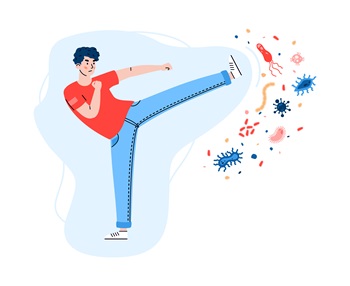Protect Your Consumers With a Strong Food Defense Plan
 Food defense is an essential part of the SQF System and one that is necessary for global food supply chain security. The lack of a properly implemented food defense program can cost your company millions, and more importantly, cause serious harm to your consumers.
Food defense is an essential part of the SQF System and one that is necessary for global food supply chain security. The lack of a properly implemented food defense program can cost your company millions, and more importantly, cause serious harm to your consumers.
What Is Food Defense?
The U.S. FDA defines food defense as, “the efforts to prevent intentional food contamination by biological, physical, chemical, or radiological hazards that are not reasonably likely to occur in the food supply.”
Food defense is meant to protect against intentional attacks where the perpetrator wants to hurt the consumer and/or the profits and brand of a company.
SQF Edition 9 Code, Section 2.7 focuses on food defense measures to protect your product, brand, and customers. A food defense plan shall be documented, implemented, and maintained based on a threat assessment (refer to 2.7.1.1). The food defense plan shall meet legislative requirements as applicable. The Code outlines the minimum requirements to include the methods, responsibilities, and criteria for preventing food adulteration caused by intentional food contamination.
How Does Intentional Food Contamination Happen?
These malicious attacks can often be traced back to disgruntled employees. In many cases, their motivation stems from seeking revenge or ideological grounds. Perpetrators can also include subversive protestors and terrorists.
Although the incidence of intentional contamination is low, even one food defense incident can have catastrophic consequences.
How to Protect Your Product and Consumers
An effective food defense plan is the best protection for every site to defend their product and consumers from intentional adulteration. A food defense program focuses on reducing the likelihood and consequences of an incident, protecting a site’s reputation, and reassuring the public that reasonable precautions are in place to protect their food.
A threat evaluation is an essential first step in the development of a food defense program. It involves the identification of potential vulnerabilities and threats at a site that could result in intentional contamination. Evaluating and assessing risks will enable a site to put controls into place and implement strategies to discourage attackers and mitigate risk.
With a proper food defense plan, you can feel confident knowing you have taken a key step in fortifying the security of your business and your customers.
SQF Risk Management: Food Defense Program
SQF has developed a new course to help businesses like yours stay vigilant against intentional food contamination. Our SQF Risk Management: Food Defense Program is a 1-hour course that enables you to ensure your food defense plan is compliant and properly identifies and mitigates the risks associated with intentional food safety contamination.
The New SQF Risk Management Collection is created by SQF and designed for cross-functional teams, not just the SQF practitioner. It includes seven courses in the most critical areas of risk management, including food defense.
Our new SQF Food Safety Risk Management Collection is available for purchase for $899. The SQF Food Defense Program is available for $189
Recent Blog Posts
SQF Code Edition 10 represents a critical step forward in ensuring rigorous yet practical food safety management across the supply chain.
In an industry where compliance and operational integrity are nonnegotiable, manufacturers and suppliers need more than just certification — they need a globally recognized solution.
Renee McVey is one of the first industry professionals to hold the Safe Quality Food Institute’s new Certified SQF Practitioner credential, which is administered by Exemplar Global.




